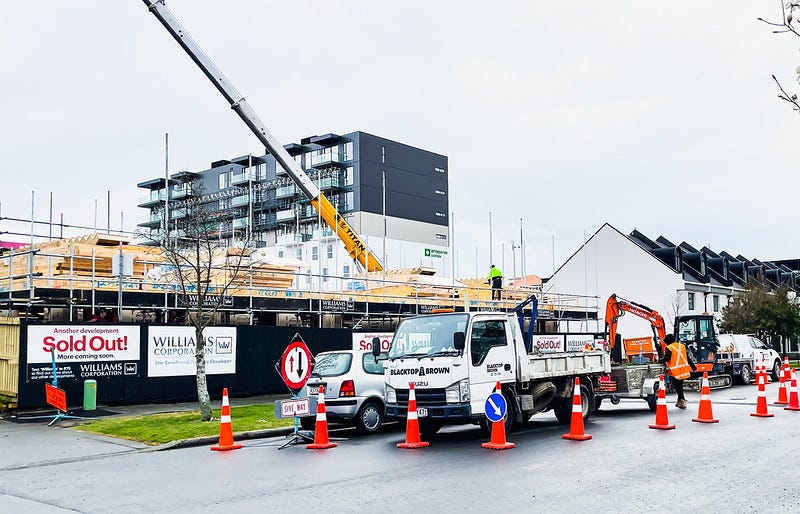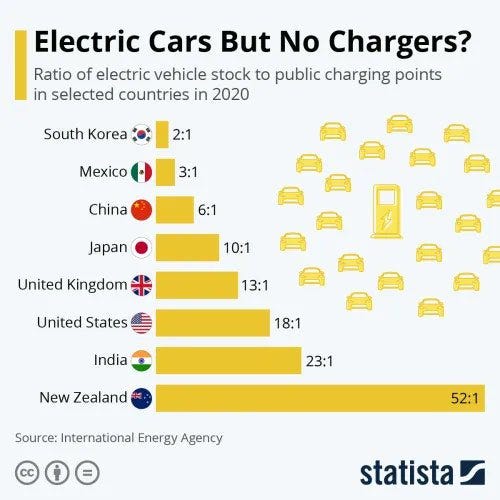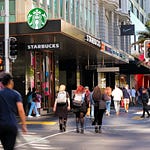TLDR & TLDL: In this week’s ‘hoon’ webinar for subscribers recorded on Friday night, we took a lap around the big events of the year and focused on:
How delta ended our elimination strategy and how the summer and next year may take longer to open up than we all expect;
What’s happening to the ‘Townhouse Nation’ accord to soften the NIMBY backlash;
How investors now buy the dip and hold on for dear life at any sign of a slump in asset prices; and,
Why we should all keep an eye on Taiwan and Ukraine as China and Russia flex their military muscles against a divided and weakened US and EU.
(This is the weekly ‘sampler’ email and podcast for both free and paid subscribers that includes the ‘Weekly Hoon’ podcast above with Peter Bale and me that was recorded on Friday night in a webinar for paid subscribers. The links to this week’s articles go to the paywalled articles I wrote this week. But I’d love the free subscribers listening to the podcast, and reading the detail and analysis below to subscribe fully to join our community and get all of my daily emails and podcasts. It also makes my version of accountability, explanatory and solutions journalism about affordable housing, climate change policies and child poverty financially viable.)
The five things that mattered this week
1. Townhouse Nation was lowered a bit
As previewed in my piece on the day of Christopher Luxon’s election as National Party leader to replace Judith Collins, the select committee considering the bill to implement the Labour-National ‘Townhouse Nation’ accord came back with changes watering down the deal Collins agreed to with Labour. A bit.
Those changes made through the second reading this week and tweaks put through in supplementary order papers included a lowering of the maximum height of three-storey buildings to 4m from 6m. The National-Labour majority on the committee wanted to lower it even more, but were unsure if it would reduce the likely increase in housing supply. It turned out that idea would cut the extra supply by a third.
But the select committee also responded to allow developers to create more space at the rear of properties and less at the front, which may offset the housing supply reduction implied by lower height somewhat. It wasn’t clear whether the changes would reduce the expected increase of supply, which was estimated in a PwC/Sense Partners report on the Medium Density Residential Standards (MDRS) at over 100,000 in Auckland over the next 20 years and over 200,000 nationally.
Modelling released by the Government this week found just 40,609 homes would be added in the next five years without the MDRS change. The original bill with a 6m limit would have increased this to 79,776 homes (an extra 37,477), but the lowering to 4m is estimated to reduce that improvement by 1,690 homes. Another proposal to reduce it to 3m would cut 12,124 from the expected increase.
So those opposed to the bill got some of what they wanted, but not an awful lot.
Here’s my piece from Monday on a survey showing 42% of those surveyed wanted the Government to lower house prices somehow.
2. A world of buying the dip and holding on for dear life
The big news in global markets and the economy this week was the formal default of China’s largest property developer, Evergrande, which has over US$300b worth of debt. Usually, that would trigger carnage in global markets, but the Chinese Government was very careful to arrange a controlled implosion where it knocked the heads together of the state-owned banks, the state-owned fund managers and the state-controlled developers to agree a series of write offs and move on in a way that doesn’t spook local savers or international investors too much.
Also, US CPI inflation rose to the highest annual rate since 1982 (6.8%), reinforcing worries about the US Federal Reserve being likely to signal next week a faster reduction in money printing and higher interest rates. Both should weaken stocks in normal situations.
Instead, the S&P 500 rallied again on Saturday morning our time to yet another fresh record high. The index had its best week since February.
This is all about ‘buying the dip’ and expecting that, whatever happens, central banks and Governments will keep protecting and boosting asset prices. The assumption is there’s always a bailout and the dumbest thing to do is give up on the rally-to-infinity…
Here’s a longer piece I wrote this week about how that’s expressed in Aotearoa-NZ.
3. Last Christmas the Govt chose not to help the poorest
In this piece I published on Wednesday, I covered the CPAG review of the Government’s progress in implementing the Feb 2019 recommendations of the Welfare Experts Advisory Group. It showed how the Public Finance Act instincts to always reduce debt meant the Government chose slightly lower interest rates over reducing child poverty.
4. When playing the man was the wrong thing to do
This week Christopher Luxon chose his front bench, including Simon Bridges as Finance spokesman. Bridges agreed in a Youtube chat shortly before National’s leadership vote that he wouldn’t reappoint Adrian Orr to a second term as Reserve Bank Governor. He walked that position back a bit after the naming of National’s new shadow lineup, but here’s what I wrote to challenge Bridges’ view on Tuesday.
5. The MSC Vaiga III diverted to Northland from Auckland
You probably won’t have heard about this, but it’s an important symptom of the way the world’s supply chains have clogged and burst under the stress of Covid. The MSC Vaiga III is a container ship that arrived at the Marsden Point Terminal in Northland on Monday. It should have stopped as scheduled at the Port of Auckland to unload about 1,500 containers filled with all sorts of mixed consignments of goods from ports around Asia.
Instead it chose to divert to unload the containers at Whangarei because of the Port of Auckland was ‘filled up’. That means those 1,500 containers will have to be trucked back down to Auckland over the next couple of weeks at the importers’ (extra) expense of up to $2,000 per container on the same road as thousands of cars and trucks venture out of Auckland for the first time in four months when the borders open on Wednesday.
I did this week’s When The Facts Change podcast on the ‘shipmageddon’ crisis that is causing all sorts of global logistics grief and is contributing to a surge of inflation.
Just like the rest of the world, Aotearoa-NZ’s ports are clogged with containers, trucks, ships and bigger shipping bills. But it’s not all because of Covid worker shortages and lockdowns. I took a deeper look at how the many weird economic effects of Covid are playing out through the world’s logistics chains, all the way from frantic factories to empty shelves.
It turns out most of the problems stem from changes in what we’re doing on our couches at home and because logistics planners are pivoting from a just-in-time approach to just-in-case. The best example played out this year in Adele’s delayed launch of her new album, in part because her record company needed an extra six months to book most of the world’s pressing plants to cater for locked-down fans’ new-found love of vinyl records and turntables. Indie bands had to get in the queue behind Adele and the new pressings for Fleetwood Mac’s Rumours and Queens’ Greatest Hits.
I spoke to Chris Edwards, the President of the Custom Brokers and Freight Forwarders Federation, and Professor Tava Olsen, the director for the centre of supply chain management at the University of Auckland’s Business School, about how much of the global logistics shock will last. We also talk about how it might shake up our ports system and create a new Government-backed coastal shipping service.
Chart of the week
Some fun things
Ka kite ano
Bernard

















